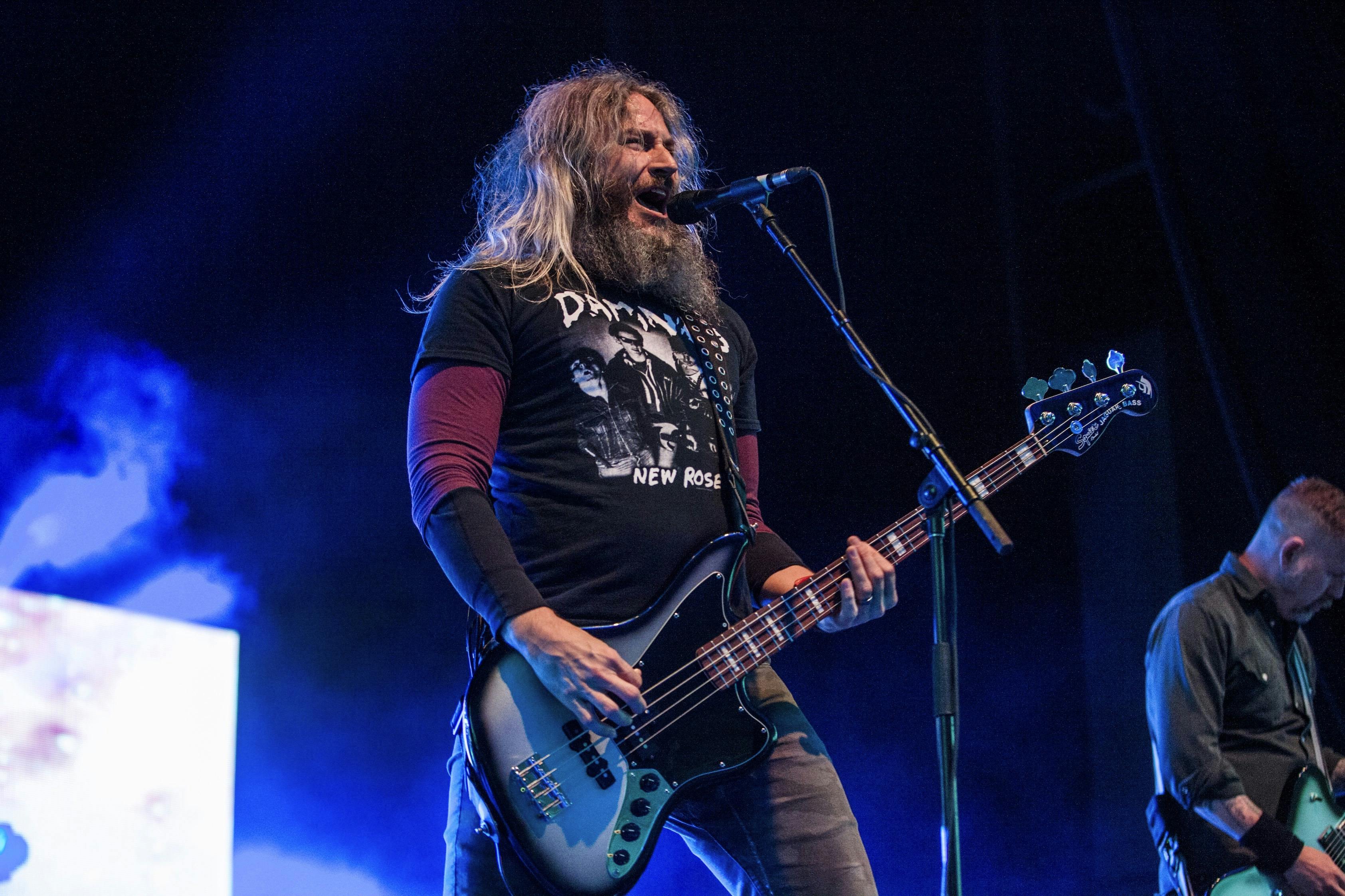Aside from that professional success, Mastodon are a notoriously private band, but several of your creative highs have been fuelled by personal tragedy. To what extent has that ability to process and plumb personal difficulty been pivotal to your success?
“Sometimes friends will come to see Mastodon and they’ll observe a totally different person up on that stage to the one that they know. When I’m playing music, I’m given the freedom to explore the inner-Tusk in me, get wild, and let out whatever it is that I’m letting out. I don’t want to say that it’s a religion to me, but it’s the just purest feeling.
“A while back, I had to cancel a whole European tour because my wife was diagnosed with breast cancer. To get that sorted out and understood, we had to cancel a whole summer. My bandmates had no qualms with that at all. A few years ago Bill got sick on tour supporting Slayer, too, and we had to go on as a three-piece. Any problems and challenges we’ve faced, we’ve overcome as a band – as this group of individuals that we are. There’re always going to be curveballs thrown at you in life. It’s how you deal with those that defines you.”
Beyond that, why has Mastodon endured with this same, ever-stable line-up where so many other bands – even your heroes in Metallica, Iron Maiden and Thin Lizzy – never managed the same?
“There are two main things. Number one, we’ve been lucky enough to grow together when it’s perhaps more normal – and natural – for humans to grow up and apart. Secondly, we have this deep trust and respect for each other where we’re able to handle those problems and bumps in the road like any other rational adult. We’re able to talk about things and fix them before they spiral into a bad place. It’s something you’d expect to be able to do between two people – with a best friend or a child – but we’re lucky to be able to make it work between four. I believe that we’re still ascending this Mastodon mountain. We’ve not yet reached our peak. We’ve still go a ton of creativity within ourselves. That attitude and mindset lends itself to that. It’s allowed us this natural growth and unique path we’ve carved through the world of rock’n’roll.”
Investing as much time as you have with Killer Be Killed and Gone Is Gone in recent times, is there any risk that your attention could be overly-divided, or that focus diluted?
“I’m working on these different projects, but my perspective on each is entirely separate. If I didn’t feel like I was able to contribute something unique to each band, I wouldn’t do it. I’ve got a relatively small circle of real friends. Eleven of those are people that I share bands with. The experiences and the song-crafting and the time that we spend together are things that I value highly. I have a little house. I have a cool little family. In order to leave my home and my family as often as I do, these projects need to be super-beneficial to me as a person; as a man; as a bandmate; as a songwriter.”
And, finally, what should be written on your tombstone?
“Not far from me here, in Fort Lauderdale, FL is the tombstone of the actor Leslie Nielsen. It just says ‘Leslie Nielsen – Let ’er rip!’ (Laughs) That’s amazing, but it’s already been taken. Honestly, I’ve never thought I’d need a tombstone because I’ve always presumed I’d end up as a pile of ash!"
Mastodon's Medium Rarities compilation is out now via Reprise
Read this next:
